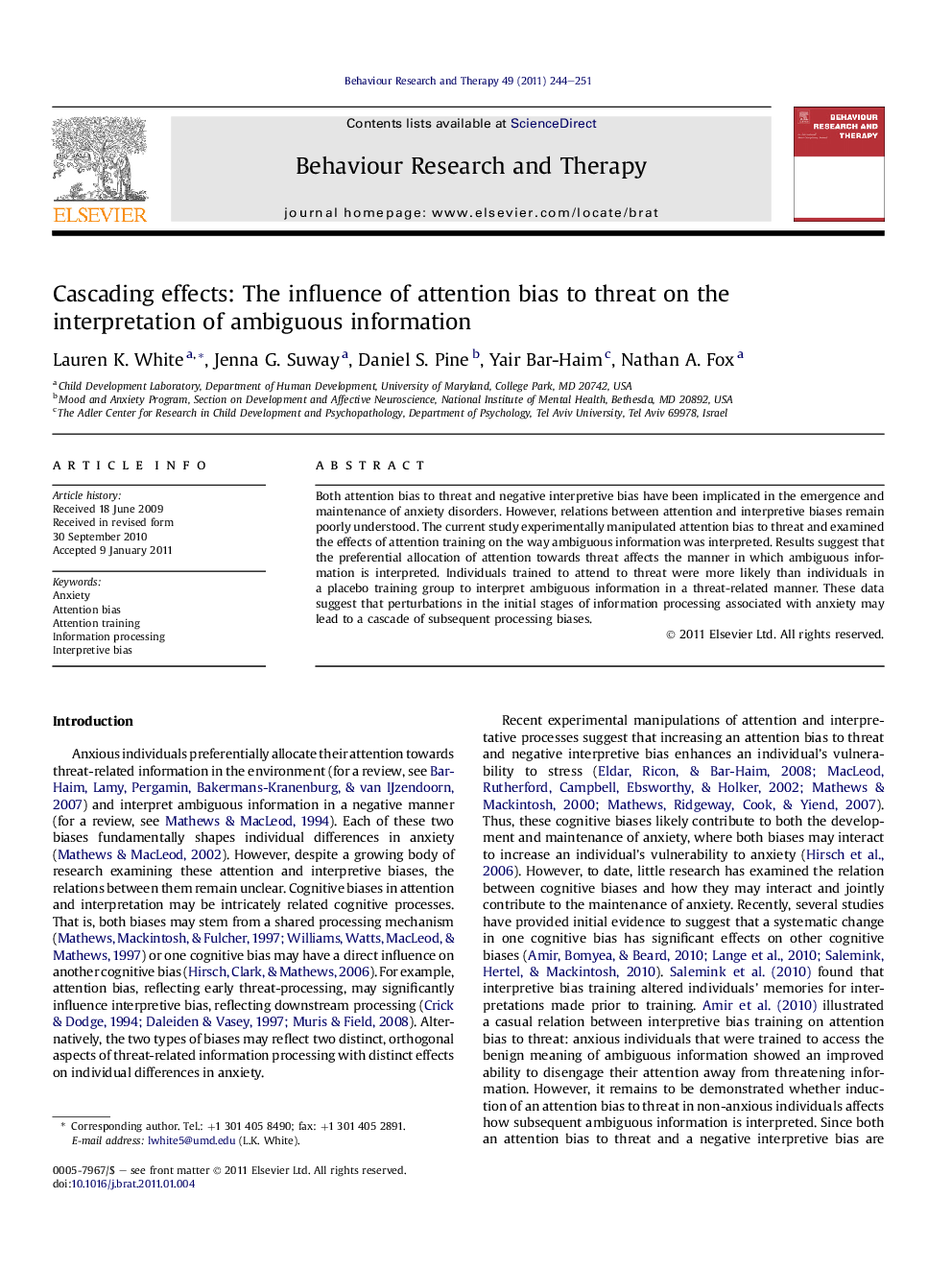| Article ID | Journal | Published Year | Pages | File Type |
|---|---|---|---|---|
| 902062 | Behaviour Research and Therapy | 2011 | 8 Pages |
Both attention bias to threat and negative interpretive bias have been implicated in the emergence and maintenance of anxiety disorders. However, relations between attention and interpretive biases remain poorly understood. The current study experimentally manipulated attention bias to threat and examined the effects of attention training on the way ambiguous information was interpreted. Results suggest that the preferential allocation of attention towards threat affects the manner in which ambiguous information is interpreted. Individuals trained to attend to threat were more likely than individuals in a placebo training group to interpret ambiguous information in a threat-related manner. These data suggest that perturbations in the initial stages of information processing associated with anxiety may lead to a cascade of subsequent processing biases.
